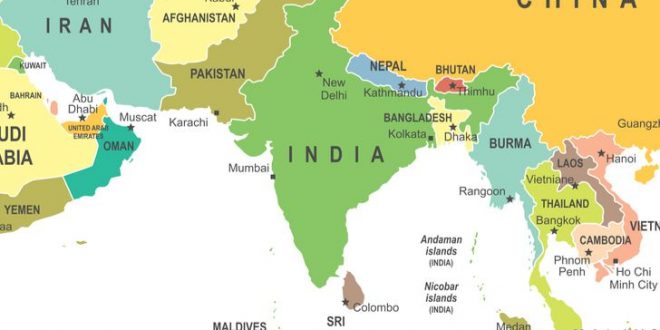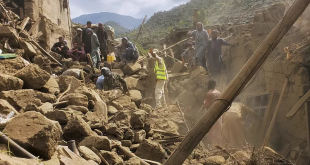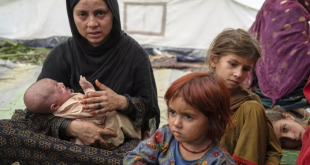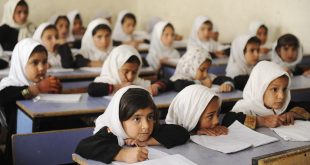The British paramountcy over the Indian states ceased to exist on 15 August 1947, as the Indian Independence Act came into force, which released the states from the obligations of the Crown and had made them independent- technically and legally. Most of the princely states were geographically situated in such a way that they could not make a link with the dominion of Pakistan and the only alternative left to them was to make a link with the dominion of India. After independence the State of Jammu and Kashmir was free to accede to either of the dominions, India and Pakistan. With a view to compel the maharaja Pakistan had organised a tribal invasion on the State of Jammu and Kashmir and captured thirty six per cent of the state. Several developments of immense importance took place in October 1947, and in a very difficult situation created by Pakistan, the Maharaja of the state decided to accede to the union of India. Lord Mountbatten, the then Governor-General of India, at the time of acceptance of the Instrument of Accession wrote a separate letter to the Maharaja which provided that in consistent with the policy of the Government of India where the question of accession has been the subject of dispute : it should be decided in accordance with the wishes of the people of the state. As soon as law and order have been restored in Kashmir and her soil cleared of the invaders, the question of state’s accession should be settled by a reference to the people.
Great Powers’ Design and Strategy
Close scrutiny of the facts indicate that the politics of plebiscite is one of the forms of imperial design. The British Government while determining the legal framework for the future political status of the princely states of India, had hoped that the larger princely states would remain independent that the subcontinental empire would consist of two dominions – India and Pakistan and that a number of large princely states would constitute the third geopolitical ingredient of the South Asian subcontinent. Their expectation was that these Princely states and Pakistan would sustain close linkages with the British Government. When the majority of Princely states acceded to India, the British plan went awry. The aspiration of maharaja Hari Singh of Jammu and Kashmir to convert his state into an independent country was sort of a last opportunity which the British Government wished to utilize to strengthen its influence and to create strategic equation with Pakistan to meet this purpose. Both Lord Mountbatten and the then British Prime Minister Clement Atlee were not happy with the accession of Jammu and Kashmir to India. It was on their advice and against his own instincts, that Jawaharlal Nehru took the issue to the UN and offered a referendum/plebiscite in that state. At the UN the imperial powers converted it into a ‘territorial dispute’ between India and Pakistan. It made the issue of plebiscite a complex one and laid the foundation of third party involvement in the matter.
US-Pak nexus on Kashmir
The problem became all the more complicated because of the involvement of the Great Powers, particularly the USA. The main reason for their involvement was the high strategic significance of Kashmir. It is situated in the north of the sub-continent at the junction of five sovereign states-India, Pakistan, China, Soviet Union and Afghanistan. It has strategic significance for all of them. It also contains head waters of three important rivers of the Western part of the sub-continent-the Indus, the Jhelum and the Chenab, and has immense forest and mineral resources. Even President of the Security Council Gunnar Jarring when visited the Kashmir valley in March – April 1957, wrote in the report he submitted to the Council that he could not fail to take note of the changing political, economic and strategic factors surrounding the whole of Kashmir question, together with the changing pattern of power relations in West and South Asia.
The opening years of the fifties emboldened Pakistan mainly due to its growing understanding with the US on security – related matters. The developments which had adversely affected Indo-Pak relations include US military aid to Pakistan and its membership of Western military pacts – South East Asia Treaty Organisation (SEATO) in September 1954 and the Bagdad Pact later known as Central Treaty Organisation (CENTO) in July 1955. India was well aware of the facts and had consistently criticized Pakistan’s military relationship with the US. The Indian Prime Minister Jawaharlal Nehru, in a letter to his Pakistani counterpart on 9 December 1953, complained that the US military aid to Pakistan would ‘completely’ change the aspects of the Kashmir problem and the question has now become ‘one of militarization and not of demilitarization’. In the first place, the politics of aid and alliance obliged the US to support Pakistan on Kashmir and consequently drew Soviet support to India on Jammu and Kashmir making it an issue in the cold war period and secondly, it made Pakistan ambitious and, encouraged it to press India for concessions. Pakistan had now the allies willing to stand by her in case of crisis which was exhibited in the coming years. Times without number and in a consistent manner some of the members of Security Council had unequivocally supported Pakistan’s legitimate stand on Kashmir during discussion and deliberations. This was despite the fact that Eisenhower, the then American President, had privately assured Nehru in March 1954 that the United States considered India a pillar of the ‘free world’, did not intend to promote Pakistan at India’s expense and cordially offered India American military aid if Nehru so wished.
Soviet Union, the sole Indian helper
In response to Pakistan’s membership of SEATO and CENTO, the Soviet Union effected a volte-face of its own in its Kashmir policy and called Kashmir question an internal affairs of India but decried imperialist efforts to turn the valley into a strategic bridgehead against the USSR. The uncompromising Indian stand on Kashmir received a significant boost from the Soviet leaders who visited India and declared in Srinagar that Kashmir was part and parcel of India and added further that the question of Kashmir as one of the states of India, had been decided by the people of Kashmir. In February 1957 the Soviet Union used its first veto in India’s favour on a Western resolution on Kashmir moved in the Security Council. It did the same in 1962 and in subsequent years. Nehru was at pains to the politics of the Anglo-American group over Kashmir in the UN. He reacted sharply by saying in the Rajya Sabha that it was India’s misfortune that the two Great powers, the United States and the United kingdom should almost invariably be against it in matter which was of great concern to it. Many resolutions have since then been adopted and many recommendations have been made to India and Pakistan, but the problem remains unsettled as far as the Security Council is concerned. The Security Council has failed to find out any workable solution mainly because of the pulls and counter pulls among the two great powers and their associates.
The writer is Dr. Rajkumar Singh, Professor and Head P.G. Department of Political Science BNMU, West Campus P.G.Centre, Saharsa-852201 Bihar, India.
 Afghanistan Times
Afghanistan Times




